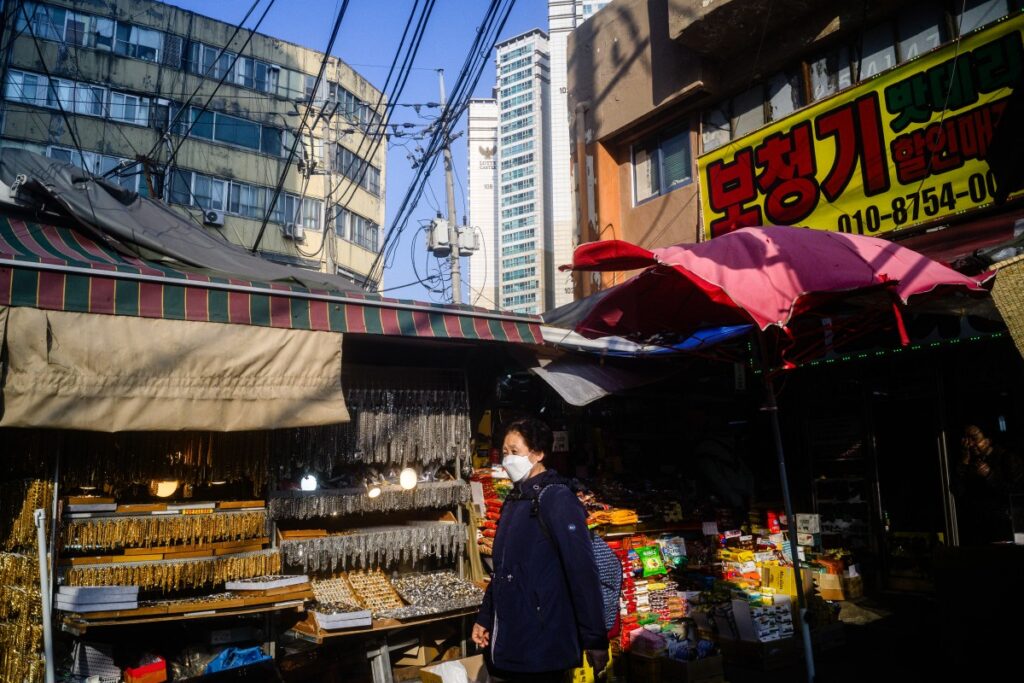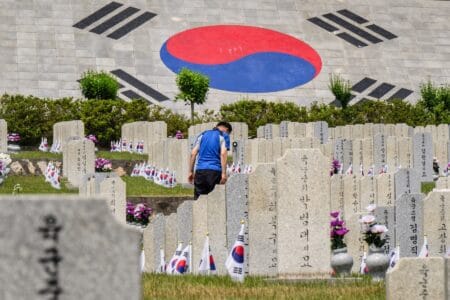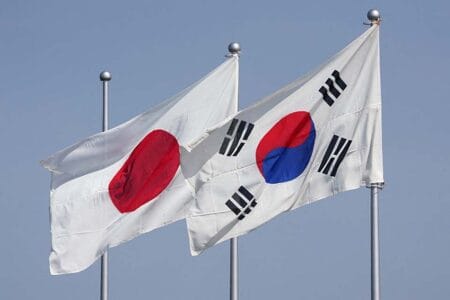July 10, 2025
SEOUL – South Korea’s one-time cash grants — part of a 31.8 trillion-won ($23.1 billion) supplementary budget that will provide every Korean citizen with at least 150,000 won starting July 21 — are not as free as they seem.
They come with strings attached, as they are only allowed for use at small businesses, traditional markets and mom-and-pop stores with annual revenue below 3 billion won. As the government puts it, these restrictions are meant to prevent “misuse” and are intended to support small business owners, though some argue this only deepens divides in the retail landscape.
The restrictions are proving to be yet another challenge for large retailers, harking back to the nation’s first stimulus rollout in 2020, when department stores and supermarket chains saw monthly sales plunge by 7 to 10 percent on-year.
Their negative growth persisted for months after May 2020, according to the Ministry of Trade, Industry and Energy. Industry analysts warn that the retail divide could widen in the third quarter as the coupon’s stimulative effects peak.
“Being excluded simply because we’re classified as large corporations is unfair,” said an official from a supermarket chain.“ Most of what we sell comes from small and medium-sized suppliers, including fresh produce and agricultural products.”
Some smaller grocery stores operated by major retailers, such as GS The Fresh, stand in a gray area, as many of their franchisees are small business owners. GS The Fresh now operates nearly 80 percent of its stores as franchises, while Emart Everyday continues to expand its franchised network.
As of now, eligible franchisees include cafes, convenience stores, restaurants and bakeries, with some exceptions in small rural towns where coupons can be used at supermarket chain Hanaro Mart, which is run by the national agricultural cooperative, if there are no grocery stores in the area.
Discussions are still ongoing on whether the government should expand coupon usage to large-scale grocery store chains in non-metropolitan areas.
In a statement on Tuesday, the Korea Federation of Micro Enterprises voiced strong opposition, saying that including large chain stores “will undermine the program’s original objective of revitalizing the small business economy and will diminish its intended policy effectiveness.”
Another sector requiring more careful government oversight is convenience stores, where the Interior Ministry is considering additional restrictions on what items can be purchased.
These concerns stem from cases during the 2020 stimulus when consumers used coupons at convenience store chains to purchase high-end electronics such as Samsung smartwatches and headphones.
“It is our role to ensure past cases of concern do not recur,” said an official from the Interior Ministry, adding that they will continue to review the detailed guidelines going forward.
Yet, some argue that item-based restrictions undermine the fairness of the subsidy program, since products like Galaxy Watches involve countless small manufacturers in their supply chains who may benefit indirectly.
According to some critics, the policy fails to take into account complex supplier networks, as it remains mired in a binary view of Korea’s retail scene — large conglomerates versus small merchants.
An example of this is the prohibition on using the coupons for in-app payments on delivery apps since, as the Interior Ministry explained, payments made through apps are counted as the delivery app company’s revenue.
Although in-person payments made through restaurants’ own card terminals are permitted, doubts remain over whether consumers are willing to give up the convenience and perks of contactless payments.
In light of this, an official from the KFME called for more diversified payment options: “It is essential to have more payment options so that small business owners specializing in delivery services can benefit as much as possible.”







